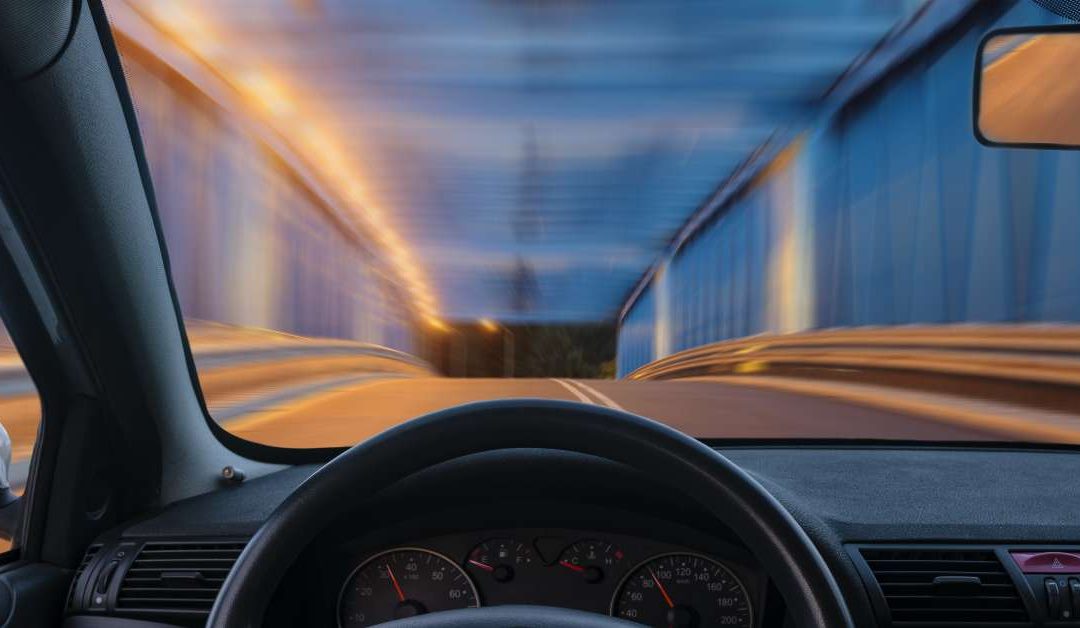From horse-drawn carriages to self-driving cars, the automotive industry has seen monumental changes over the years. One of the key pieces of technology to evolve is the humble windshield.
Initially a simple pane of glass, today’s windshields are a marvel of engineering, offering safety, comfort, and even a touch of futuristic tech that’s transforming how we drive. To get a better idea of where they’re at and where they’re going, we’ll take a deep dive into how automotive tech will affect the future of windshields.
The Importance of Windshields in Vehicles
Windshields play a critical role in the overall safety and functionality of vehicles. Not only do they provide unobstructed visibility, essential for navigating the roads, but they also serve as a vital structural component of the vehicle. Modern windshields are designed to withstand significant force, contributing to the vehicle’s rigidity and helping to protect passengers in the event of a crash.
Additionally, they protect occupants from wind, debris, and adverse weather conditions, enhancing overall driving comfort. With advancements in technology, today’s windshields can incorporate features such as defrosting systems, heads-up displays, and even sensors that enhance driver awareness. Understanding their importance underscores how integral windshields are to both safety and the driving experience.

The Current State of Windshields in Vehicles
Today’s windshields are far removed from their rudimentary beginnings. Modern windshields are made of laminated safety glass. This consists of two layers of glass with a layer of polyvinyl butyral (PVB) sandwiched in between. This design ensures that even if the glass shatters, the fragments stick to the PVB layer, preventing injuries.
Modern windshields also incorporate UV protection. This feature shields occupants from harmful ultraviolet rays, enhancing comfort and health. In addition, some windshields now come with built-in sensors for rain, light, and even humidity, automatically adjusting wipers and lighting for optimal driving conditions.
Despite these advancements, the fundamental design has remained the same for decades. However, that’s all about to change as emerging technologies continue to shape the future of the automotive landscape.
The Importance of Innovation in Windshield Design
As the automotive industry evolves, so too must the components that play critical roles in vehicle safety and functionality. Innovation in windshield design is paramount not only for enhancing safety but also for integrating new technologies that improve the driving experience. By prioritizing innovation, manufacturers can address ongoing challenges in the sector.
Future advancements in windshield technology will undoubtedly play a pivotal role in shaping safer, smarter, and more efficient vehicles. Here are a few to watch for:
Smart Glass Technology
Smart glass systems can change their opacity in response to various stimuli, allowing for better control of sunlight and privacy within the vehicle. This technology can enhance comfort by reducing glare and heat while maintaining visibility.
Heads-Up Displays (HUD)
Integrating HUDs into windshields allows critical information, such as speed, navigation, and alerts, to be projected directly onto the glass. This feature enhances safety by keeping a driver’s eyes on the road and reducing the need to glance down at dashboard displays.
Augmented Reality (AR)
AR technology in windshields can provide drivers with real-time data overlays that interact with their environment. This can include navigation prompts or hazard warnings, transforming how drivers receive and process information while driving.
Advanced Driver-Assistance Systems (ADAS)
With the integration of ADAS, windshields are becoming essential components in vehicle safety systems. Features like lane departure warnings and collision detection rely on cameras and sensors that are often mounted on or near the windshield.
Self-Cleaning Coatings
Emerging self-cleaning technologies can be applied to windshields, using hydrophobic and oleophobic coatings that repel water, dirt, and oils. This innovation not only improves visibility but also reduces the need for frequent cleaning.

How Vehicle Manufacturers Are Implementing the Latest Tech
Major automotive manufacturers like Tesla, BMW, and Mercedes-Benz are already at the forefront of incorporating advanced windshield technologies. Tesla’s Model S, for example, features a HUD that projects critical information right onto the windshield, enhancing the driving experience.
BMW is exploring the use of AR windshields, which will revolutionize navigation and hazard detection. Mercedes-Benz, known for its luxury and innovation, is investing in smart glass technology to offer personalized comfort and energy efficiency.
These implementations are not just limited to high-end models. Mid-range vehicles are also beginning to adopt these technologies, making advanced windshields accessible to a broader audience. This democratization of technology is paving the way for a new standard in automotive design.
Predictions for the Future of Windshield Technology
Understanding upcoming trends allows manufacturers to stay competitive in a rapidly evolving market. Here are some of the biggest expectations coming from automotive manufacturers:
- Integration of AI-driven systems: Future windshields may incorporate artificial intelligence to analyze real-time data, enhancing the functionality of ADAS by predicting potential hazards and adjusting systems accordingly.
- Adaptive lighting technologies: Windshields might feature adaptive lighting solutions that automatically adjust headlight brightness and direction based on surrounding conditions, improving visibility during night driving and adverse weather.
- Health monitoring sensors: Future developments could introduce health monitoring capabilities within windshields, tracking driver fatigue or alertness levels and providing alerts or intervention when needed.
- Biometric security features: Advanced biometric recognition technology could be embedded into windshields, ensuring only authorized drivers can operate the vehicle, thereby enhancing security.
- Increased use of sustainable materials: As environmental concerns rise, future windshields may be constructed from eco-friendly materials that not only reduce carbon footprints but also enhance durability and longevity.
- Enhanced connectivity with smart cities: Windshields are likely to become interconnected with smart city infrastructure, allowing for real-time updates on traffic conditions, weather changes, and even vehicle-to-vehicle communication.
- Evolution of transparent displays: In the future, windshields could be designed as completely transparent displays that not only provide driving information but also entertain passengers with interactive media while the vehicle is in motion.
- Dynamic health and comfort features: Windshields may also evolve to include features that adapt the interior climate control and air quality based on the health needs of passengers, ensuring a comfortable ride tailored to individual preferences.
As consumer expectations shift towards smarter, safer, and more sustainable vehicles, being proactive in technology adoption is essential for success.
Improving the Driving Experience
From humble beginnings to a future brimming with possibilities, windshields have come a long way. Automotive tech will play a huge role in the future of windshields, revolutionizing how we drive and making our journeys safer, more comfortable, and more environmentally friendly.
If you’re in need of a mobile windshield replacement, Fusion Windshield Repair is your trusted automotive partner. We offer fast, affordable service that you can count on, no matter what the issue is. See for yourself how our mobile auto glass replacements and repairs can improve your driving experience!


Recent Comments